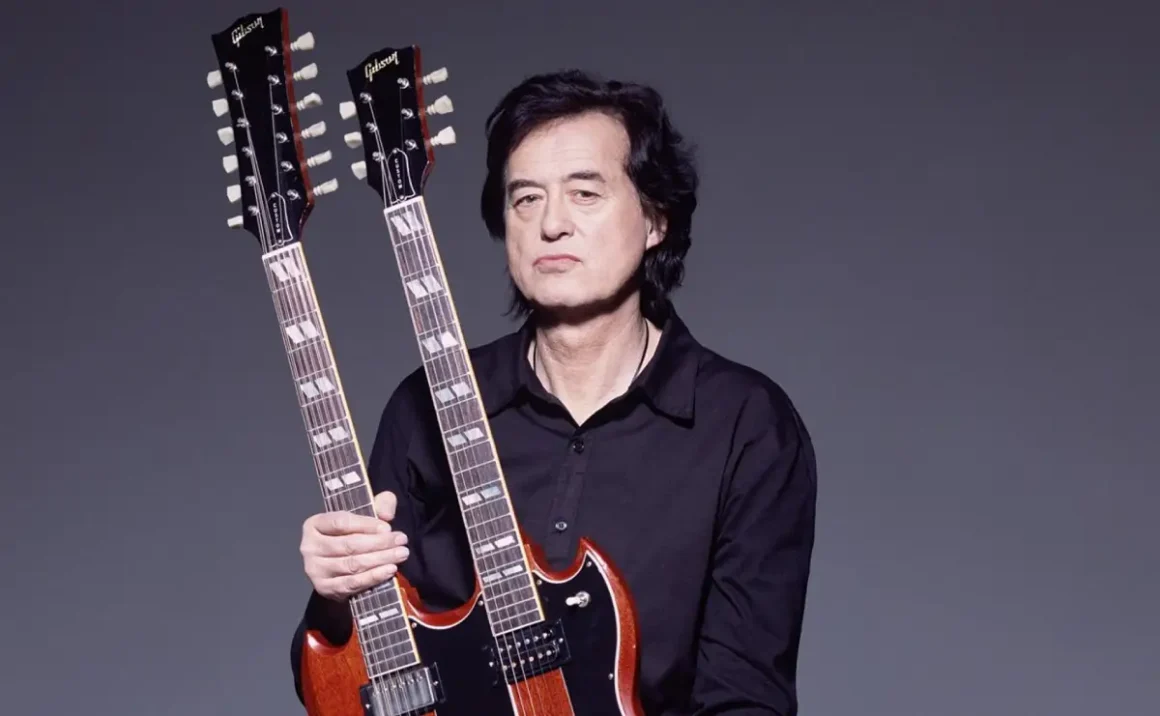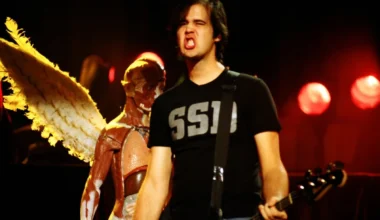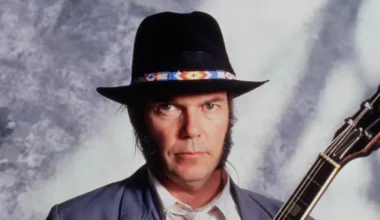Few guitarists can lay claim to having influenced so many players after them, from Eddie Van Halen to John Frusciante, as Jimmy Page. Not only did he mastermind rock breaking off from its basic state into something much more muscular as the creative leader and guitarist of Led Zeppelin, but he also established himself as the master of the riff, delivering a far more varied oeuvre than other innovators of melodic bursts like Jimi Hendrix.
Page lists numerous achievements with the six-string. Whether it was creating the punk sound years before it became popular with “Communication Breakdown,” experimenting with a bluesy swagger in “Whole Lotta Love,” or even creating the great winding epic “Stairway to Heaven,” the intensity of these standouts outperformed the records made by the other most well-known guitarists of the time.
The world may have taken a while to fully comprehend Page and Zeppelin’s intentions, but once it did, the band decisively dethroned The Beatles as the most well-liked group in the world. In addition, by broadening their sound and staying abreast of technological advancements, the quartet withstood the test of time and shifting tastes, in contrast to a great deal of other groups that arose in the 1960s.
The eerie opening to “In the Light” is from Physical Graffiti (1975). It features one of the most atmospheric openings of the era. This is thanks to Page’s bowed guitar. Additionally, Jones’ all-encompassing synth work adds to the mood. This album gave rise to stadium rock as we know it today. They were now filling stadiums with their powerful creations rather than just performing there.
Even though Page is inextricably linked to rock innovation, he has always been a fan of pure rock ‘n’ roll. It had emerged as a faster, more playful offshoot of the blues. Apart from that, he and his generation had been shown the light for the first time by the heroes of the 1950s. During this time, there was no other context for the genre. It was the sound of them turning away from their parents’ weary world of war.
Les Paul is one person from this era that Page believes to be a particularly significant influence. An undisputed master of the electric guitar, he skillfully combined jazz, country, and blues with technical flair. His work also served as a model for later experimentalism by Led Zeppelin and his peers, utilizing effects like delay phasing and overdubbing.
The fact that he was self-taught adds even more credibility to his story and serves as a marker for the revolutionary strides that followed in his wake. In the 1950s, Paul and his wife Mary Ford sold millions of records. They ignited the interest of countless young people. The new popular culture was also influencing these individuals. Technological innovations like television shaped this culture.
But Paul wasn’t the only one playing. In addition, he was a luthier who invented the electric guitar. Gibson’s Les Paul model was based on his prototype, “The Log,” which he endorsed, weaponized, and contributed to making famous.
Les Paul was “the one,” according to Page, who was describing the players who inspired him in a 1975 interview with Rolling Stone. “On an entirely different style—the guy who played on the Maria Muldaur single, ‘Midnight at the Oasis,'” he clarified. Garrett Amos. He is focused on Les Paul, and Les Paul is the real deal. Without his invention of the electric guitar, we would not be where we are today.
Years earlier, in 1968, Page gave a more comprehensive summary of Paul’s significant achievements. “Les Paul is a true genius—he invented the electric guitar and multitrack recording, among other things. I believe he was the first to use a recording machine with four or eight tracks,” he said. “It seems that he began multitrack recording back in 1945, based on our meeting. Jeff Beck and I have always found him appealing.
There would be no Page, Beck, or other legendary rock titans like Pete Townshend without Les Paul. You could even go a step further and argue that his inventions, no matter how simple, helped to establish the path for musicians who rely heavily on effects, such as J Mascis and Kevin Shields.








